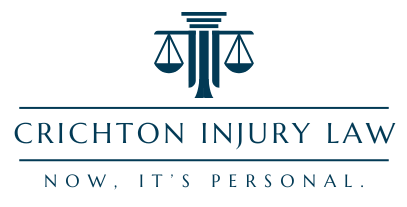Navigating Workers’ Compensation Claims in Pennsylvania: Essential Documents You’ll Need
Navigating Workers’ Compensation Claims in Pennsylvania: Essential Documents You’ll Need
If you’ve been injured on the job in Pennsylvania, understanding how to file a workers’ compensation claim can feel overwhelming. However, having the right documents at your fingertips can make the process smoother and increase your chances of receiving the benefits you deserve. At Crichton Law, we’re dedicated to assisting the Philadelphia public with personal injury matters, including navigating the complexities of workers’ compensation claims.
Key Documents for Your Workers’ Compensation Claim
Employer Notification
One of the first steps is to notify your employer about your injury. While a verbal notification is important, you should also provide a written notice. This document should include:
- The date and time of the incident
- A brief description of how the injury occurred
- Your contact information
- Medical Records
Your medical records play a crucial role in substantiating your claim. These documents should include:
- Initial treatment records
- Diagnosis from healthcare providers
- Any subsequent treatments or follow-up visits
- Prognosis and recommendations for further care
- Claim Form (LIBC-500)
Completing the Pennsylvania Workers’ Compensation Claim Petition (LIBC-500) is essential. This form gathers details about:
- Your personal information
- The nature of your injury
- Employment details and wage information
- The insurance provider’s information
- Wage Documentation
To calculate your compensation benefits, you’ll need to provide proof of your earnings. Acceptable documents include:
- Pay stubs from recent pay periods
- Tax returns from the previous year
- Any other documentation reflecting your average weekly wage
- Witness Statements
If there were witnesses to your accident, gathering their statements can strengthen your case. These should include:
- Their contact information
- A written account of what they witnessed
- Incident Report
If your employer has a specific incident report form, be sure to fill it out. This document provides an official record of the accident and can be crucial in your claim. - Insurance Information
If your employer has workers’ compensation insurance, you will need to gather information about their insurance provider. This includes:
- The name of the insurance company
- Policy numbers
- Contact information for the claims department
Additional Considerations
While these documents form the backbone of your claim, there are additional steps you can take to ensure a smooth filing process:
Follow Medical Advice: Adhere to all medical recommendations and attend follow-up appointments to demonstrate your commitment to recovery.- Keep Copies: Always maintain copies of all submitted documents for your records.
- Consult a Professional: The claims process can be complicated, and having legal representation can help. At Crichton Law, we have experience in personal injury matters, including workers’ compensation claims, and can guide you every step of the way.
Why Choose Crichton Law?
Navigating the complexities of a workers’ compensation claim can be daunting, especially when you're also focused on recovery. At Crichton Law, we understand the intricacies of Pennsylvania’s workers’ compensation laws and are here to assist you in gathering the necessary documents and filing your claim effectively. Our team is dedicated to advocating for your rights and ensuring you receive the benefits you deserve.
If you’re in Philadelphia and need assistance with a workers’ compensation claim or any personal injury matter, don’t hesitate to reach out. We’re here to help you navigate the process and secure the support you need during this challenging time.
Conclusion
Filing a workers’ compensation claim in Pennsylvania doesn’t have to be a stressful experience. By preparing the necessary documents and seeking the right support, you can navigate the process with confidence. Remember, at Crichton Law, we’re committed to helping you through every step of your claim—because your recovery is our priority.











